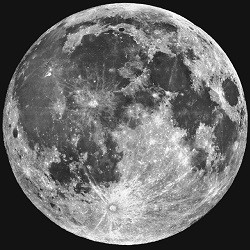
Discovery Channel and Science Channel are partnering with the X Prize Foundation, to cover the live broadcast of a moon landing that is likely to take place in 2015.
Both TV channels will track the entire process of testing, lift off and do a live coverage of the moon landing. The channels have declared that they will participate in the television coverage of the $30 million Google Lunar X Prize (GLXP). They will complete against each other by recording the historic competition for successfully landing a space craft on the lunar surface, travelling 500 meters and broadcasting live videos and images back to Earth.
"The $30 million Google Lunar XPRIZE offers all the ingredients of fantastic television; stakes, competition, big characters and mind-blowing visuals. It's the perfect project for Science Channel and Discovery Channel to partner on. When the winning craft touches down on the moon's surface, it's going to trigger buzz and inspiration all over the world. Our intention is to provide a live, front-row seat to history being made, just as we did with Nik Wallenda's Skywire event and the upcoming Everest Jump Live." Hollywood Reporter quoted Eileen O'Neill, group VP at Science Channel, Discovery Channel and Velocity.
"In addition to the technological breakthroughs catalyzed by the Google Lunar XPRIZE, we have an equally important goal of inspiring young scientists, engineers and space explorers. More than half the world's population has never had the opportunity to experience a live broadcast from the moon. Partnering with Discovery Channel and Science Channel will allow us to engage the public around this milestone event, creating an 'Apollo Moment' for the next generation," said Robert K. Weiss, XPRIZE Vice Chairman and President.
The idea has some similarity with first live telecast of moon landing, the Apollo program. It was not only the greatest achievement in the history of engineering and technology but was also the most watched live television event then. The Apollo 11 moon landing and the following moon walk by Neil Armstrong and Buzz Aldrin were witnessed live on television by billions of people across the world in 1969.
Though no human beings are travelling to the moon in the Google Lunar X Prize competition, new high definition video technology is expected to make the live event a successful and memorable one.
Photo Credit: NASA (Edited by Vishnuprasad S Pillai)

















